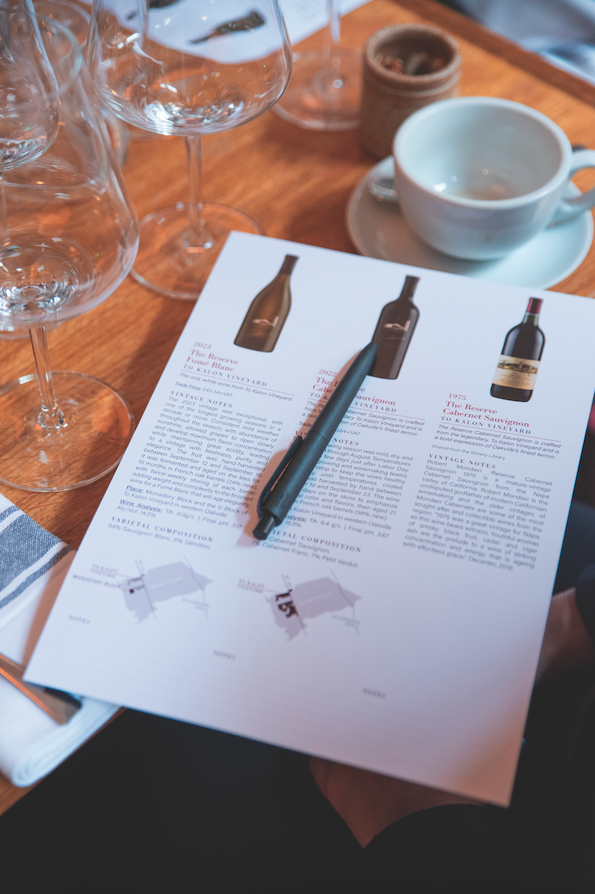Drinks Advertising
There are plans to lobby the EU to make it compulsory to place health warnings on alcoholic drinks
WELL, IT LOOKS like it’s finally happening. Drinks advertising is about to take a hammering in Ireland, in the first phase of a policy aimed at tackling that country’s problems with drink. Ireland’s prime minister, Bertie Ahern, has outlined a series of measures aimed at tackling alcohol abuse, especially among the young.
That there is a problem is undeniable, unfortunately. Until fairly recently, and perhaps belying its image, Ireland’s per capita consumption of alcohol was actually a long way short of other European countries where drinking, of wine especially, is woven into the fabric of everyday life, like France, Italy and Greece.
However, over the past decade, alongside astonishing economic growth in Ireland, went an even more striking rise in alcohol consumption. In 1960, the annual consumption of alcohol per Irish adult was 4.2 quarts (a quart is the equivalent of 1.13 litres in the UK); in 2000, it had reached nearly 16 quarts.
This compares with a European Union average of about 9.5 quarts. The effects of alcohol abuse cost Irish industry over £600 million a year in sick leave, while side effects like medical care and car accidents cost a further £1 billion. So, understandably, the government is trying to do something about it. It is looking at a series of drastic proposals which will hit drinks marketing pretty badly.
The intention is, for instance, to institute a ban on alcohol advertising on television and radio before 10pm as well as on public transport and in cinemas where films for people under 18 years of age are being shown.
The aim is to start to clamp down on measures regarded as encouraging so-called “binge” drinking, so Ahern also intends to “prohibit the low-cost selling of alcohol products” through sales promotional techniques, including happy hours and free bars. Furthermore, the government is also planning to lobby the European Commission to make it compulsory to place health warnings on all alcoholic products.
The Irish Brewers Association, which was hosting the conference at which Ahern outlined his proposals, reckons this last measure is a non-starter, as the IBA’s director, Paddy Jordan, told the Irish Times.
“The basic product, when well made, is very good for you. It’s the over-consumption that causes problems, not the product itself,” he said. That kind of argument is unlikely to cut much ice with the good folk at the EU, of course, and certainly the EU Commissioner for Health and Consumer Protection, the Irish politician David Byrne, is already looking at the part alcopops and energy drinks play in encouraging young people to drink more than is good for them.
Apparently, too, the European Working Group on Alcohol and Health is also “concerned” at the effectiveness or otherwise of the drinks industry in regulating itself over the issue of alcohol abuse. If there is a suggestion that self-regulation is not working, then statutory controls may be introduced which could mean the banning of certain types of drink, like alcopops.
The Irish government aims to draw up the start of a bill on the issue before the end of the year, though it is not at all clear when the actual legislation is likely to begin its journey to the statute books. It is, if nothing else, an endorsement of the power of advertising either to sell drinks or to attract the opprobrium of politicians out to find an easy target, depending on your viewpoint.
Partner Content
There are, of course, obvious similarities with tobacco advertising and the long, long campaign to ban it in virtually all its guises. That has now happened in the UK, though as yet there is little enough sign of a fall away in tobacco smoking, especially among young people.
The brewers are already espousing the arguments which delayed legislation against tobacco advertising for so long. The key argument is that advertising does not lead to an increase in overall consumption, but only to the favouring of one brand over another.
We’ve been here before, of course, but politicians in Ireland appear to have little patience with the argument. It is rejected as “nonsense”, for example, by Fine Gael’s health spokeswoman, Olivia Mitchell, who has said that nothing would dissuade her from the “reality” that advertising helps to increase consumption.
Presumably, Paddy Jordan of the IBA was keen to get his point across too, that drink is not like tobacco, which is never good for you in whatever quantities. (Though I must admit, I’m not sure about his notion of drink being “very good for you”).
There is also a desire to lower the limit on drink driving to 50mg/ml compared with the 80mg/ml it is now, which would leave the UK as the only major country in Europe to retain the higher alcohol limit.
The change would mean, no one of average build drinking over one pint of beer ought to get behind the wheel of a car. The government also aims to ban advertising at and sponsorship of sporting events by alcohol companies next year.
Indeed, it was only last month that the state advertising regulator pulled a commercial from television because of what it decided was the appearance of an inappropriate link between successful athletes and drinking.
If there is a lesson to be drawn by Ireland’s nearest neighbour, the UK, from all this then it is probably that the drinks and advertising industries had better make sure that self-regulation works.
The circumstances are different here, not least because the UK has not seen the explosion in alcohol consumption in recent years which has been the case in Ireland. But longer opening hours, more 24-hour licences, especially in the big cities, means the drinks industry must look sharp.
After all, governments frequently have a tendency to emulate the restrictive practices of others, especially if they can appeal to the moral majority in the process.




